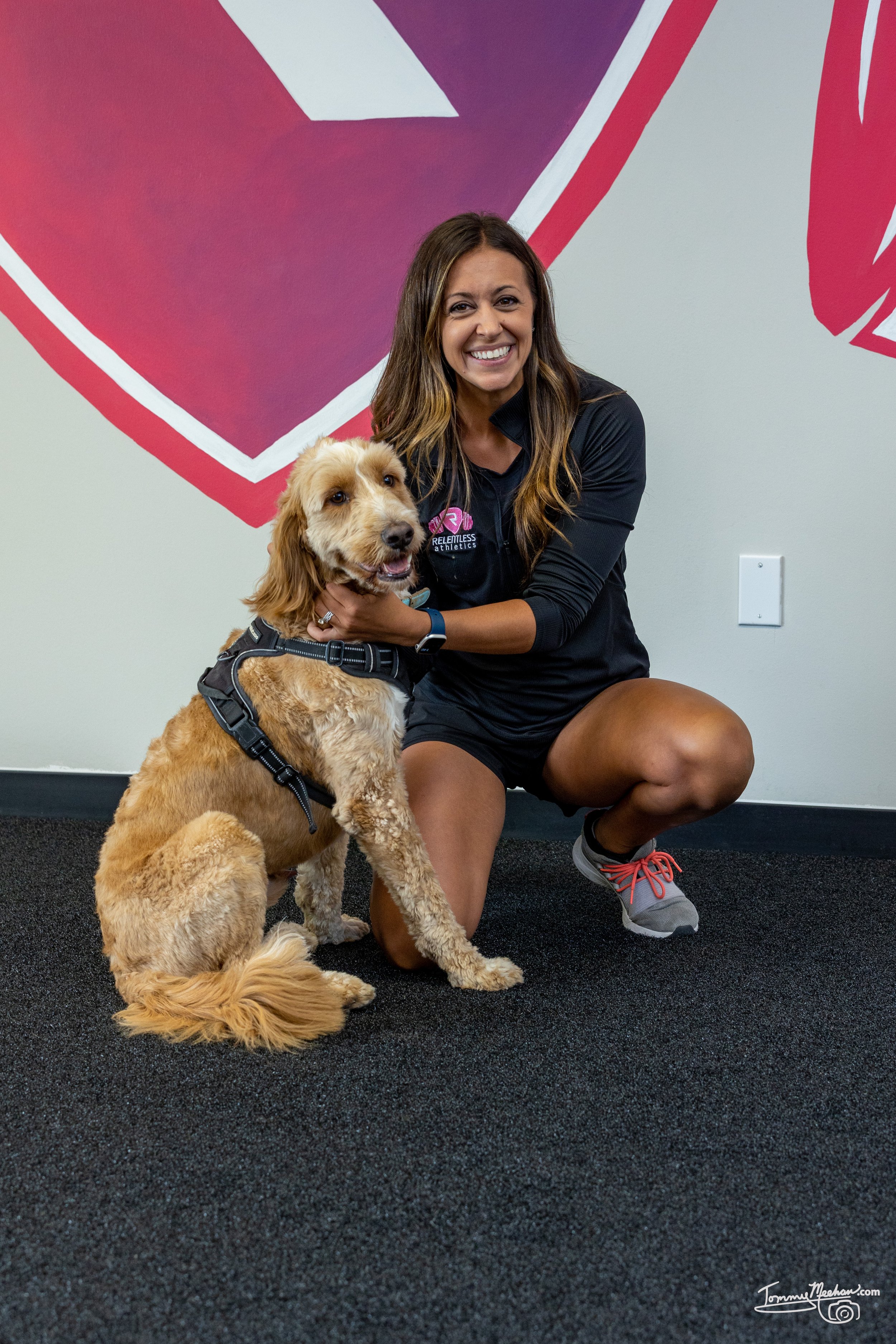Three Drills to Improve a Female Athlete’s Speed in her First Step
By Emily Neff (Pappas), Ph.D. student
Girls are innately slower than males in their first 5-10yds of a sprint.
BUT she doesn’t have to stay slower
Paired with explosive heavy lifting, try these Three Drills we use with our female athletes to improve their first-step speed.
1) CHAIN RESISTED LATERAL START SPRINT.
Adding a chain to this drill helps improve the female athlete’s ability to recruit more muscles.
The more muscles, the faster the acceleration.
Compared to boys, girls lack TYPE II muscle fibers, making their initial step a bit slower.
But adding this movement into her training program can help her body learn how to recruit her earned powerful muscles in the weightroom on the turf!
2) Lateral Strap RElease Sprint
Starting a sprint with initial tension (strap) helps train her body to bring more muscles to the party.
Then, by releasing the strap, her muscles are CHARGED and ready to explode.
Helping her body learn how to ACCELERATE with her first step down the field or court.
3)POGO HOP to Sprint
Plyometrics such as a skater hop help the female athlete recruit more muscle fibers.
When plyometrics are added before a sprint, they help train the female athlete’s body to engage more muscles so they are “primed” to sprint.
This helps train your daughter’s body to be more EXPLOSIVE and outrun her brother…
Putting it together
Adding these three drills to your daughter’s sprint training program anywhere from 2-3 days per week paired with HEAVY lifting (no lifting will not make her bulky…) is her surefire way to help her first step be EXPLOSIVE
Give them a try!
ABOUT THE AUTHOR
In 2015 Emily opened Relentless Athletics to build a community for female athletes while educating their parents and coaches on the necessity of strength training and sports nutrition to optimize sports performance and reduce injury risks in the female athlete population.
Emily holds a M.S. in Exercise Physiology from Temple University and a B.S. in Biological Sciences from Drexel University. She is currently pursuing her Ph.D. at Concordia University St. Paul with a research focus on female athletes & the relationship between strength training frequency, ACL injury rates, and menstrual cycle irregularities (RED-s). Through this education, Emily values her ability to coach athletes and develop strength coaches with a perspective that is grounded in biochemistry and human physiology.
When she isn’t on the coaching floor or working in her office, she is at home with her husband Jarrod and their daughter Maya Rose, and, of course, their dog Milo (who has become the mascot of Relentless)!!












